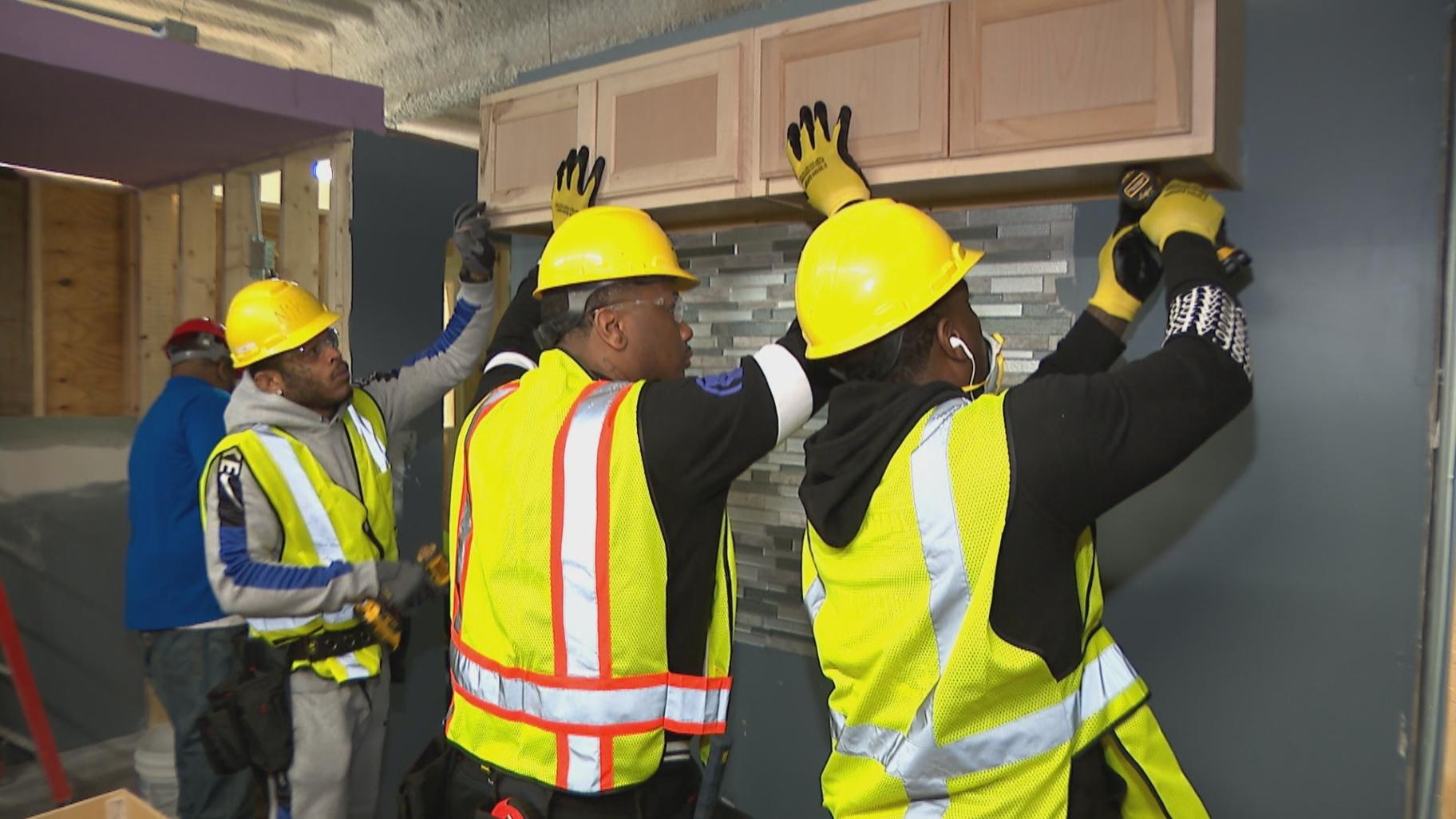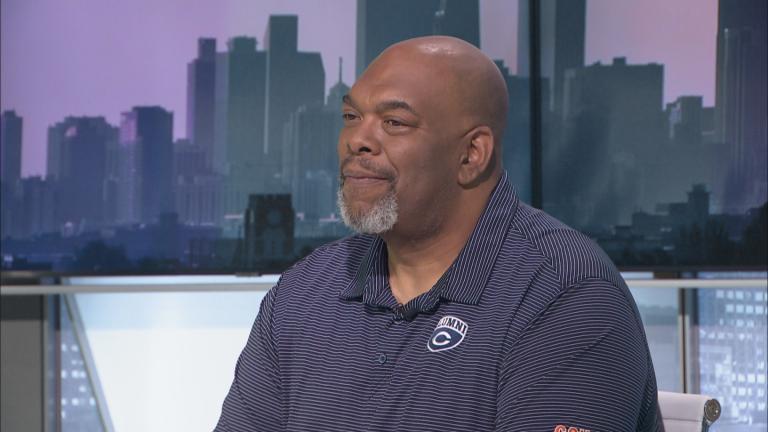As intake and housing manager at St. Leonard’s Ministries, David Harris helps people returning from incarceration successfully reenter their communities. And he said he knows they can do it because he’s done it himself.
“I wear many hats here,” Harris said. “So sometimes I’m a counselor, sometimes I’m just an ear for someone to listen to. I came through the program back in 1996 myself. I’ve been through substance abuse. I’ve been homeless, and I’ve been through the system. But what I did is I chose to change my life through educating myself. And then giving it back now, it’s like looking in the mirror.”
In the nearly 70 years St. Leonard’s has maintained its quiet presence on the West Side, the nonprofit has grown far beyond its original mission of providing housing for men exiting incarceration, executive director Zack Schrantz said.
“We are not just a housing provider, we’re not just a workforce development provider, we’re not just a mental health provider, we’re not just a physical health provider and we’re not just substance abuse and recovery supports — we’re all of those things,” Schrantz said. “There’s just so many obstacles that get put in the way of our men and women as they become returning residents. And so we provide all of our services from housing to all of our workforce programs free of charge. The only thing that we ask our participants and community members to do is to really invest in themselves and try to do something different.”
Though St. Leonard’s offers the many kinds of support Schrantz outlined, it still begins with housing, both transitional and permanent. David Rosa said the 42 furnished units at St. Andrew’s Court on the campus allow residents to ease into independence at their own pace.
“There’s a lot of guys that get here that have never been on the lease before, never had an apartment,” Rosa said. “They can feel that they’re at home and that’s what the whole thing is about. If they’ve been here over a year with us and they’ve been paying rent and everything like that, it helps when they go out there and apply for an apartment out there, that they can use us as a reference.”
 A 14-week construction skills course taught by Jonathan Wilson prepares participants for trade apprenticeships and industry jobs. (WTTW News)
A 14-week construction skills course taught by Jonathan Wilson prepares participants for trade apprenticeships and industry jobs. (WTTW News)
Job training opportunities for participants are just steps away at the organization’s Michael Barlow Center. Chef instructor Golden Moore left a career in fine dining to teach a comprehensive culinary skills course at St. Leonard’s.
“In addition to us learning about food, we also learn how to be professional, how to respect each other, how to encourage and root for each other because sometimes you never know what a person is dealing with or whatever their background is, so we’re more like a family here,” Moore said. “If someone’s not here — ‘Hey, where are you? What’s going on? You need some bus fare? Do you need some words of encouragement? Hey, you want to pull up a stool to rest your legs for a couple of minutes?’ I just want to keep the space inviting to keep the people coming back.”
A 14-week construction skills course taught by Jonathan Wilson prepares participants for trade apprenticeships and industry jobs.
“We’re learning to frame a house, to build a house from the ground up,” Wilson said. “We learn the framing, electrical, plumbing, roofing. They leave where they could work for property management companies, to become handymen. It’s a wide range of ways that they can go. They know they can be a competent person that the company rely on. It’s a joy to work with these guys. You will not go wrong, hiring or having them around to fill your team.”
St. Leonard’s leadership said the proof their holistic approach works is recidivism rates that are a fraction of the state average.
“I think now, I think the people are understanding and appreciating the work we’re doing, that it just makes sense on so many different levels,” Schrantz said. “It makes sense on a level of humanity, a level of spirituality. And then just from an economic perspective as well, it hasn’t worked to lock people up and forget about them. There’s a growing recognition that society is better if we figure out better ways to welcome and incorporate returning residents.”
“Someone said this at our last graduation — he said he was broken when he came here, and I know what he means by that,” Harris said. “And you can be broken, but then you got a place to heal.”








